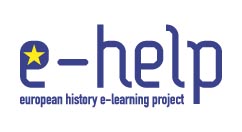Using ICT to breakdown barriers to learning
Toulouse 17-19 February 2005
Teaching in a secondary modern school on an area where the old Tripartite system prevails (the top 32% of the ability range go to grammar schools), I am used to encountering some fairly stubborn barriers to learning.
Specifically
1.
Linguistic
Deprivation
2.
Cultural
deprivation
My
seminar
is
an
attempt
to
outline
some
of
the
successful
ways
software
and
web
pages
have
been
used
by
classroom
practitioners
to
break
down
these
barriers
and
engage
previously
labelled
“unacademic”
pupils
in
historical
and
sociological
study
leading
to
examination
success.


